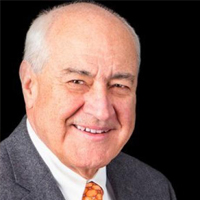
During the pandemic, it’s been nearly impossible for veterans to retrieve their military and medical records from the National Personnel Records Center in St. Louis. The facility is still operating at very limited capacity and has a backlog of about 500,000 records requests.
Veterans need these archived records — which are still only available on paper — to access their service-related benefits. This includes benefits related to healthcare, VA loans, education, disability, pensions and burial. Often, it’s the widows or children of veterans who need to access these records.
Earlier this month, the National Archives and Records Administration wrote a letter to the Department of Defense, asking for support to help ease the backlog.
The good news, I recently discovered, is other veteran services organizations can assist with getting the records more quickly.
Hitting a Gold Mine
A client and buddy of mine who spent 11 years in the army, including two complete tours in Vietnam, tried unsuccessfully to get his military records early this year. The main document is the DD Form 214, Certificate of Release of Discharge from Active Duty, which is really a synopsis of your military history. This form has been in use since January 1950.
I tried to call the National Personnel Records Center on behalf of my client (who made 204 jumps in combat and was my football teammate and ROTC classmate), but their system was down, and I couldn’t get through to the Veterans Administration. I then contacted the Virginia Department of Veterans Services and I felt like I hit a gold mine.
Within two weeks of speaking with a vet services representative at the Virginia Department of Veterans Services, I had my client’s DD 214 and medical records. Veterans affairs departments in other states may also be able to provide records assistance, so it could be worth calling them.
I was unfamiliar with the Virginia Department of Veterans Services although I served in the U.S. Army during the 1960s. (I was a first lieutenant when I left the army in 1964 and then served in the reserves.). I also passed around the information to a bunch of my colleagues, including a three-star general who hears these same complaints from veterans who can’t get records or callbacks.
“My oldest living veteran client is 94 years old; he served in World War II and Korea.”
Over the years, I’ve worked with probably hundreds of veterans. They served in the Second World War, the Korean War, Vietnam, the Cold War, the Persian Gulf War, and more recently, the wars in Iraq and Afghanistan. My oldest living veteran client is 94 years old; he served in World War II and Korea. He was a Navy pilot and ended up being a captain. I’ve also worked with generals, enlisted men and women, and women officers.
The American Armed Forces Mutual Aid Association, established in 1879, is also a treasure trove of information for spouses, friends and family.
Be Prepared and Persistent
The pandemic has really brought to light the importance of always keeping copies of discharge papers easily accessible. Guard them with your life. The DD 214 is almost like a birth certificate; you have to have it.
“The pandemic has really brought to light the importance of always keeping copies of discharge papers easily accessible. Guard them with your life.”
When I was stationed in Germany and couldn’t get the 7,000 sparkplugs I ordered through MILSTRIP (the Military Standard Requisitioning and Issue Procedures). I had to be persistent. It’s no different with procuring records. You can’t be a wallflower; you have to go after it.
If a client signs a third-party release military form, you can get access to the records they need so you can help them.
What about career military clients who’ll be retiring soon? As they say in the military, “You’ve got to get your mess kit in order.”
Additional Reading: Help retiring military clients transition to civilian life
This includes having the right documents, knowing what their benefits will be in retirement, naming and notifying beneficiaries, and knowing their assets and liabilities. Everything goes into the pot.
Military families have also moved around and sometimes own two or three rental properties in communities where they were stationed. They have to structure their estates so their families can pick up the pieces.
We try to meet with both spouses and try to get as much on the table as we can so they’re not blindsided. This includes their wills, trusts, powers of attorney, and healthcare powers of attorney. Military spouses have generally run their households and are up to date, but they may need your help completing forms and understanding the benefits they are entitled to.
Brief the Next Generation
It’s also important for clients to speak with their adult children.
Recently, we had a veteran pass away who had discussed his benefits with his wife. In fact, the couple had done a very good job planning. But she had since developed dementia and they hadn’t briefed their adult children about their documents, which surprised me. They didn’t even know what a DD 214 was. We tried to get them through it, but their confusion added to their angst and anger.
We like revocable trusts that use pour-over wills to ensure a decedent’s remaining assets (such as life insurance policies and IRAs) go into the trust.
I’ve taken my staff to Civil Motions Days in Virginia to see what happens when families don’t have the right documents in place and die intestate. When you leave the court, you want to scream, because people didn’t do what they needed to do.
Not all the work we do to help veterans is financial related. We had a 90-year-old client with a blood pressure problem who had to travel 90 miles to get blood pressure tablets from a VA hospital. We said, “This is crazy,” and connected his daughter with the Veterans Health Administration, which agreed. He was then able to get his prescription closer to home.
In 2017, President Trump signed the Veterans Choice Program Extension and Improvement Act, which enables military veterans to continue receiving healthcare in the civilian sector when a Veterans Affairs provider isn’t easily accessible.
If your clients’ children are serving or served, encourage them to ask their children to get their mess kits in order too.
It’s really a universal message, whether a client is military or not. People let stuff slide, they don’t pay attention, and those who suffer are the ones that survive. It’s a nightmare.
Donald Mosby “Don” Rembert is the founder of Rembert Pendleton Jackson (RPJ), a fee-only RIA firm in Falls Church, Va. He served in the 1st of the 16th Infantry Division in the U.S. Army in Baumholder, Germany.







